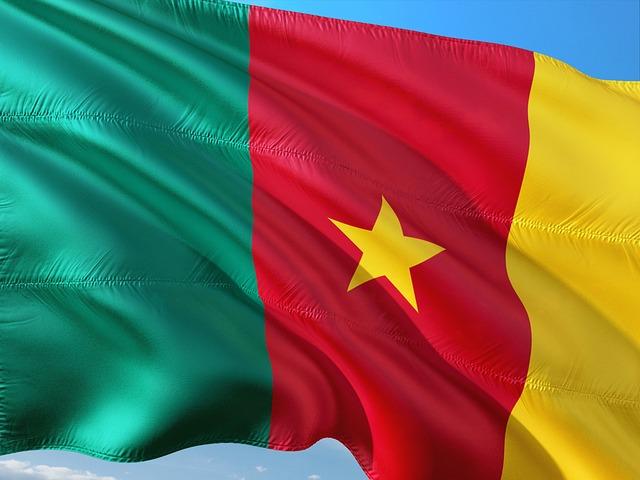In a recent announcement that has drawn both national and international attention, the Cameroonian goverment has declared that President Paul Biya, who has been in power for over four decades, is in good health at the age of 91. The statement seeks to quell growing concerns about the president’s well-being amid ongoing speculation regarding his age and stamina, particularly as cameroon navigates complex socio-political challenges. as one of Africa’s longest-serving leaders, Biya’s health remains a pivotal issue not only for his ruling party, but also for the stability of the contry as a whole. This article delves into the implications of the government’s assertions about biya’s health, the political landscape of Cameroon, and how his leadership continues to shape the nation’s trajectory.
Cameroon Government Confirms President Biya’s Robust Health Amid Speculation
The Cameroonian government has officially quashed rumors regarding President Paul Biya’s health status, asserting that the 91-year-old leader is in excellent condition. this announcement comes amid growing speculation about Biya’s fitness and capability to lead, particularly as his advancing age has led to widespread public discussions. Government spokespersons emphasized that the president continues to fulfill his duties and responsibilities with vigor, announcing his participation in upcoming national events and meetings.
In an effort to provide openness and reassure the populace, officials have highlighted several key points regarding Biya’s health and schedule:
- Regular Health Check-ups: Biya reportedly undergoes routine medical evaluations, the results of which confirm his robust health.
- Active Engagement: The president has actively participated in governmental functions and diplomatic engagements,reinforcing his commitment to national leadership.
- Public Appearances: Plans for public addresses have been announced,aimed at reinforcing confidence in his leadership.

Public Reactions to Biya’s Health Update and its Implications for Governance
The announcement regarding President Biya’s health has elicited a spectrum of reactions from the public, ranging from skepticism to relief. Many citizens, accustomed to official proclamations regarding the President’s condition, remain cautious. Some express disbelief, fueled by past instances when the government has downplayed significant health issues. Others, though, welcome the news, interpreting it as a positive sign for stability in a nation characterized by political uncertainty. The implications of this update are profound, particularly in a country where leadership continuity is often associated with governance efficacy.
Supporters of Biya argue that his stable health could pave the way for stronger leadership, enabling him to pursue critical governance initiatives. Conversely, critics raise concerns about the implications of his extended reign, questioning the effectiveness and transparency of his administration. They point out that as Biya ages, it becomes increasingly vital to address the question of succession and political legitimacy. The ongoing dialogue among citizens underscores an urgent need for a robust governance framework that addresses the aspirations of a younger population yearning for political reform.

Analyzing the Impact of Biya’s longevity on Cameroon’s Political Landscape
The prolonged presidency of Paul Biya has had a profound effect on Cameroon’s political landscape, often raising questions about the implications of his continued leadership. Biya’s longevity, marked by decades in power, has not only fostered a political culture of continuity but also led to significant challenges regarding governance and democratic processes. His administration has been characterized by a centralization of power, which has, in many instances, marginalized opposition voices and stifled political competition. This atmosphere has resulted in a stagnation of democratic reforms and has left the populace grappling with issues such as corruption, economic disparities, and limited freedoms.
In terms of public sentiment, the perception of Biya as a resilient figure amidst controversies has created a polarized political environment. While some see his age and health as an chance for eventual political transition, others remain skeptical about potential successors. The uncertainty surrounding succession plans has led to anticipations of further political unrest as factions vie for influence. A breakdown of political stability in the wake of Biya’s eventual departure could lead to a power vacuum, possibly inciting unrest or violent conflicts among various political entities. The table below illustrates the current political dynamics and possible scenarios as Cameroon navigates its unique political challenges:
| Scenario | Potential Outcome |
|---|---|
| Continued Longevity of Biya | Maintained status quo; potential for increased dissent. |
| health Decline | Rushed succession process; instability and power struggles. |
| Planned Transition | Possibility of peaceful transfer; increased hope for reforms. |

Recommendations for Enhancing Transparency and communication Regarding Leadership Health
To foster a more transparent environment regarding leadership health, it is imperative for the government to implement systematic communication strategies. Regular updates about the health status of national leaders, particularly those in long tenure, can considerably bolster public confidence. Strategies might include:
- Scheduled Health Bulletins: Establish a routine for health updates, such as quarterly reports, to keep the public informed.
- Independent Medical Assessments: Involve neutral health professionals to provide assessments and reports on leadership health, ensuring credibility.
- public Forums: Organize town hall meetings or live Q&A sessions where citizens can ask questions regarding leadership health directly to officials.
Moreover, enhancing communication through digital platforms is essential in this age of facts. Leveraging social media to disseminate key health information can create a direct line of communication between the government and the populace. Establishing a central online repository for health records and updates, easily accessible to the public, could be instrumental in promoting transparency. A potential framework might include:
| Platform | Purpose | Frequency |
|---|---|---|
| Government Website | Health Reports & News | Quarterly |
| Social Media | Real-time Updates | As Needed |
| Press Conferences | In-depth Discussions | Monthly |

The Role of Biya’s Leadership in Shaping Political Stability in Cameroon
Paul Biya’s leadership continues to play a pivotal role in establishing and maintaining political stability in Cameroon, particularly given the country’s complex socio-political landscape. His governance style is characterized by a blend of authoritarianism and strategic responsiveness to dissent. By implementing policies aimed at economic development and national unity, Biya has managed to quell some public unrest, although criticisms regarding human rights abuses persist.The government often touts achievements in infrastructure and public health as indicators of stability, despite the ongoing Anglophone crisis and increased demands for decentralization.
In the political arena, biya’s long tenure has fostered a sense of continuity amidst turmoil.His administration leverages a mix of political alliances and military support to maintain order. Key factors contributing to this perceived stability include:
- Political Repression: Restrictive measures against opposition parties have curtailed significant challenges to his rule.
- Media Control: Tight regulations on the press limit dissenting narratives, shaping public perception.
- Economic Initiatives: Investments in infrastructure projects have created jobs and may quell some societal frustrations.
| Year | Major Event | Impact on Stability |
|---|---|---|
| 2016 | Emergence of Anglophone Crisis | Increased tensions and calls for independence |
| 2018 | Presidential Elections | Controversy and allegations of fraud; Biya remains in power |
| 2021 | National Dialogue | Attempts to address socio-political issues without considerable change |

Future Prospects for Succession Planning in the Context of biya’s Extended Presidency
The political landscape in Cameroon is currently characterized by uncertainty regarding leadership succession, particularly in light of President Biya’s longevity in office. As the nation debates the implications of Biya’s extended presidency, discussions surrounding succession planning have gained critical importance.With ageing leadership, several key factors will likely influence the trajectory of governance in the country, including:
- Candidate Viability: Potential successor candidates must demonstrate political acumen and public support to be considered viable.
- Continued Governance Stability: Any leadership transition should aim to maintain governmental stability to prevent unrest.
- Engagement of Political Institutions: Political parties and institutions need to actively engage in discourse about viable succession plans.
In preparing for a future without biya, various stakeholders—including political analysts, citizens, and potential successors—will need to establish frameworks that assure continuity and democratic processes.The establishment of a transparent succession plan may bolster public confidence and strengthen electoral integrity moving forward. Considerations for successful succession could include:
| Key Consideration | Description |
|---|---|
| Civic Engagement | Encouraging public discourse on leadership qualifications. |
| Institutional Reforms | Reform political institutions to support equity and candidacy diversity. |
| International Support | Engaging global partners to ensure a smooth transition process. |

Future Outlook
the Cameroonian government’s recent assurances regarding President Paul Biya’s health reflect a concerted effort to quell any rising concerns about the longevity of his leadership. At 91, Biya’s continued presence at the helm remains a focal point in Cameroon’s political landscape, underscoring both his enduring influence and the complex dynamics of governance in the country.As the national and international communities closely monitor this situation, the implications for Cameroon’s political stability and future governance will be pivotal in the months to come. Further developments will be crucial in providing clarity on the trajectory of Biya’s administration and its impact on the nation’s socio-political fabric.







